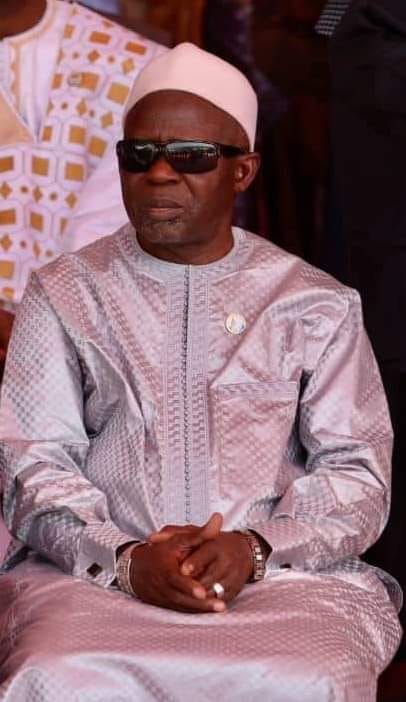
Dear Compatriots
As we take stock of the year that was, we thank Almighty God for the gift of life and the countless blessings. Today, the urgent question for all Gambians is how far have we come as a people in healing the divisions of the past and building a united nation, three years after the dictatorship that had blighted our homeland?
As Gambians we have much to be proud of in our efforts to build a democratic and inclusive nation. We see it every day, in our music and sports arenas, in our National Assembly, and on our television screens where programmes reflect the talent and diversity of our nation and its languages and cultures. We see it in the work of the CRC and most poignantly we see it in the work of the TRRC.
My message this year is focused on reconciliation because reconciliation is impossible as long as corruption continues, some individuals continue to sow division, the vast majority of our people continue to live in poverty, high youth unemployment which has led to a pervasive sense of hopelessness that is responsible for the tragedy off the coast of Mauritania early this month.
This confirms that true reconciliation is not only about conceding civil liberties of the people. It is also about political and economic transformation.
Since we accomplished our democracy three years ago, our people have demonstrated time and again their immense capacity to look beyond superficial differences in the quest to achieve a better Gambia, and with it, embrace a democratic way of life.
This is not to diminish the impact of the past. The Gambia of today still suffers from the effects of two decades of dictatorship, gross human rights violations and Government incompetence. As the author William Faulkner famously wrote of the American South: “The past is not dead and buried. In fact, it isn’t even past.”
We must address the unfinished business of our democratic transition. We must close the festering wound of abject poverty that exists amongst our people. We must forge ahead with law reform and social development. We must continue to transform our workplaces and restructure our economy so that it benefits all.
In this sense, reconciliation is a very practical undertaking. It is about the work that needs to be done to unlock investment in our economy, to reduce the cost of doing business and to promote growth. It is about the urgent measures we need to take to ensure a reliable supply of electricity to homes and businesses. It is about ensuring that our water resources are preserved and equally available to all.
Reconciliation means that we should continue to use the capability of the state to improve the lives of the people, to have a tax regime that is progressive and public finances that are responsibly managed.
Reconciliation also requires that we have access to quality health care through, among other things, the introduction of a National Health Insurance.
We need to improve the quality of education nationwide and rural schools in particular and ensure that there is a renewed focus in early childhood development programmes. We must continue to seek out and forge durable social compacts to attain our vision of the ‘Other Gambia’ that has been fundamentally transformed.
We must all play our part if we are to bequeath to our children a society that has truly reconciled. “It is time to put aside egos, individual and collective, for the sake of the youth.”
Let us make a concerted effort to move forward together, focusing on what unites us as Gambians instead of what divides us as one nation.
We shall continue to pray for the soul of our great leader, the first President of the Republic Alh. Sir Dawda K. Jawara and all the souls of the departed, for Allah in His infinite mercy to grant their souls eternal peace.
Let us reach out to each other on this day, and throughout the year build a united democratic nation. I wish you all well over the festive season and all the best for the new year.
Best wishes,
Ousainou ANM Darboe










Recent Comments